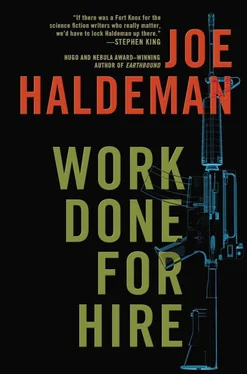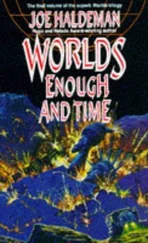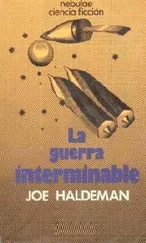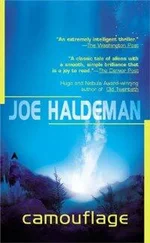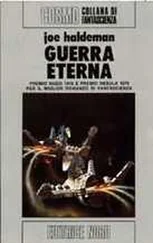“What you suppose to be huntin’, this time of year?”
“Nothing yet. It was a present.”
She rolled over onto an elbow and touched the back of her head gingerly. “Don’t like guns.”
“Me neither,” Kit said emphatically.
The woman fixed me with a baleful stare. “This present. The man give it to you, why he didn’t just knock on your door?”
“My uncle Johnny,” I improvised, “he’s kind of crazy. I mean, he’s always doing stuff like this, elaborate pranks.”
“With a gun? Sure.” She sat up with surprising grace, and a groan. “Your Johnny, he give my boy a twenty-dollar bill to tell you look in that room. That’s some uncle.”
“Yeah. He’s crazy.”
“You wouldn’t mind if I called the police.” She said po -leese, mocking her own accent.
I might have paused too long. “Do what you want.”
“Let me put it some different way. Would it be worth a hundred dollars to you fo’ me not to call the police?”
“I suppose it would.”
“Uh-huh. Then I suppose it might be worth a thousand.”
“No way.”
She rocked a little bit, thinking. “How ’bout for five hundred bucks I let you tear that page out of the logbook, and I never seen you, neither of you.”
“I can’t believe this,” I said to Kit. “Bargaining with a woman we came back to—”
“You best believe it,” the woman said. “I do appreciate you coming back, but get real. You got money and I ain’t. You on the wrong side of the law, and I got a cell phone. You want that page for five hundred dollars?”
“We’re not criminals,” Kit said.
“I know you ain’t that kind. If I thought you’d do me harm I’d be hiding.”
“So you’re just trying to make an honest buck,” I said.
“Dishonest buck,” she conceded. “You got a lot more than five hundred dollars, and I got a lot less.”
“Okay,” I said, “but you have to throw in the cell phone.”
She nodded. “Six hundred, then.” She unclipped the cell phone from her belt holder and handed it to me. Just a symbolic gesture, but I took it.
“Why don’t you put the bikes in the car,” Kit said, turning her back to count out bills from a banded stack. “I’ll take care of the logbook.”
“Okay.” It wasn’t quite that simple. I wheeled the bikes out to the hatchback, but they were too long to just stuff into the back. I had a panic moment—no tools—but Mary told me there was a tool kit under the counter in the office. I removed the front wheels and the bikes stacked into the back easily.
While I had a pair of pliers, I took the precaution of sabotaging this new rifle the same way—take the powder out of a bullet and fire just the primer, to lodge it halfway up the barrel. Useless to an assassin, but that was never really in my job description.
Icalled Underwood on the lady’s cell as soon as it was 9:00 in Washington but got a recording. I asked her to call this number back and also send an e-mail. Phone trouble.
We decided to stay off the expressway, and just crawl down the two-lane. Might as well make it easy for the Mississippi cops, if Mary Taylor decided not to stay quiet for $600. We had bigger problems.
How had the Enemy caught us? From the billboard encounter we knew that they weren’t following cell phone information; I’d stomped the cell long before that. Maybe, far-fetched as it seems, the mystery did go back to the surgery in the army hospital in Germany—a tracer bug imbedded in muscle mass. What would it use for power? Can a tiny battery or fuel cell work after sitting for ten years? Maybe there was some biological thing, generating electricity from my own body chemistry.
As soon as we could stop for a few hours in a big enough town, I should arrange to have my hand X-rayed. I could complain about phantom pain from the missing finger, and who would refuse to give me a picture? If only to shut me up. A tracer could be tiny, but big enough to see.
I didn’t say anything out loud about that. Of course this car had to have been bugged by whoever left it for us. We could assume they knew exactly where we were at any time, and could overhear us talking. Kit hummed a folk song from a couple of years ago: “Sittin’ in my home alone / Waitin’ for the god-damn phone… .”
She took the paper tablet and marker out of her bag and wrote HAVE TO DUMP CAR—GREYHOUND IN GULFPORT? in big block letters.
I nodded and scrawled CASH TICKETS TO TWO DIFFERENT PLACES? Keeping my eyes on the road.
It made me nervous, the idea of being separated. But we had agreed that it was a necessary step. There would come a future, I supposed, when every little Podunk bus station and train terminal would have spy-cams with face recognition software. For now, though, you might still travel through the country without Big Brother making sure you stay out of trouble. If you’re careful to stay off the grid.
They would have our description, a man and a woman biking together, out in the middle of the country but without any touring gear. We’d be less conspicuous as individuals just taking bus rides to wherever.
(I don’t think I was unduly paranoid about this—and my controlling metaphor wasn’t Big Brother, actually, but Big Mother, the nanny state. If you really want to keep control of your children, you have to keep them on a leash. The image of the cyber-state as a harried young mother with children going every which way, straining at tethers, seemed pretty accurate.)
We turned on the radio and listened to dreadful Southern nova ska for the benefit of our supposed eavesdroppers. After about ten minutes, though, Kit made a face and slapped the search bar until it delivered some funky bayou jazz on NPR.
We did take an hour and a half to indulge my paranoia. We saw a sign and pulled into a small “urgent care facility” in the middle of nowhere, and I complained to the doctor about sharp pains in my hand, by the stump. He had a young man take an X-ray, and brought the film to me with a perplexed look, and put it up on the wall.
“Never seen anything quite like this,” he said, “but then I don’t get a lot of combat amputees.” Where the bone for the little finger was cut off, there was an opaque perfect cube, maybe a third of an inch on a side. “The medics didn’t say anything to you about it?”
“It was a confusing time.”
“At a guess, I’d say it was something to promote healing. Never seen the like. Maybe you were a guinea pig, and they didn’t follow up.” He took off his glasses and rubbed his eyes. “Not allowed to do that, but they do. God… damned… army. You a disabled veteran?”
“Eighty percent,” I said.
“You get home, get the VA on their case. Get a patient advocate and stand your ground. They can call me if you want.” He handed me his business card and a prescription. “This is Tylenol with a little codeine. Don’t drive on it.”
He stood up and shook my hand. “Thank you for your service, son. Wish I could do more.”
“You’ve done plenty.” Kit and I both said good-bye, staring at the little white cube on the film.
We settled the bill in the waiting room and then stood for a minute in the small parking lot before getting in the car. “I don’t feel good about leaving you now,” she said.
“Not that much has changed,” I said. “We figured it was something.” I looked at my hand. “Know any amateur surgeons?”
By the time we got to Gulfport it was dark. The next bus going north didn’t leave till seven in the morning. That didn’t bother either of us; stop at a nice motel and have a decent dinner and a sleep together before we separated.
Not a good decision, it turned out.
Читать дальше
